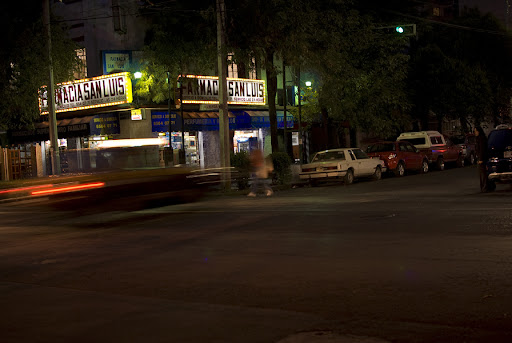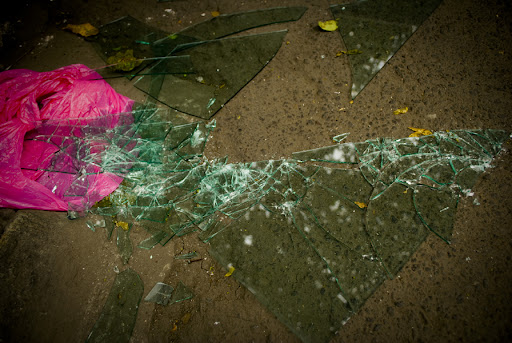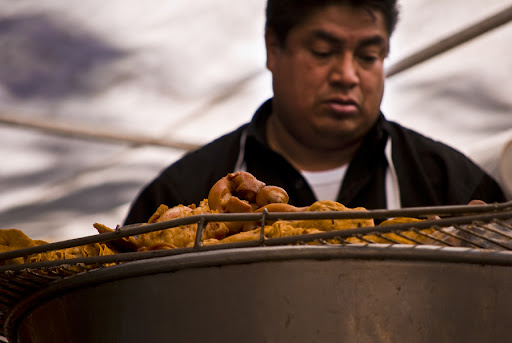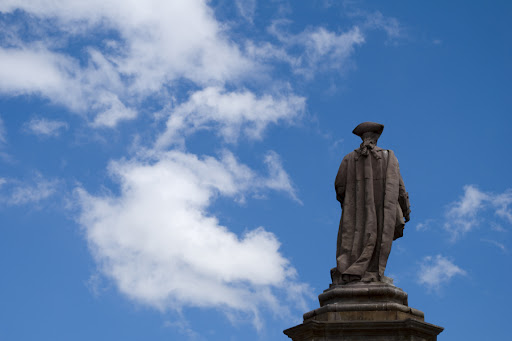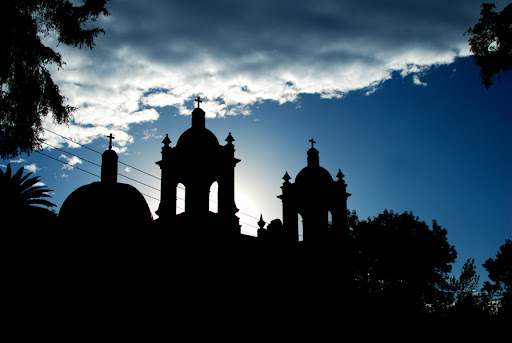
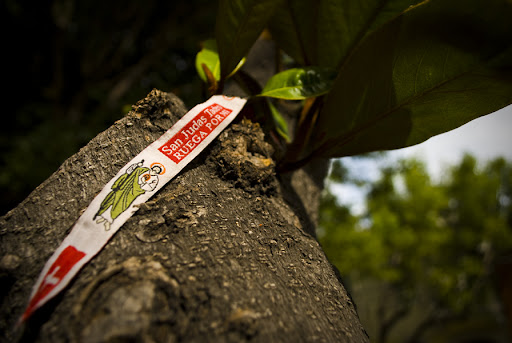

I awoke to church bells this morning. Religion, or perhaps more accurately, faith, is an inescapable part of life here. Although devout Catholic practice is shaped by the corrosive qualities of urban life, it is a thread that runs through both quotidian life and national history.
On a weekend when Glenn Beck was proclaiming the United States to be a Christian nation, Mexico was preparing to celebrate the bicentennial anniversary of an independence movement begun by Catholic priests. If the ultimate realization of independence came about on a simple platform that officially affirmed Roman Catholicism as the new country's religion, observance and belief--then as now--existed in multiplex popular forms. Though it is not uncommon to see people carrying statues of saints through the streets or on the metro, by far the most prevalent indication of faith is the permeation of the cult of San Judas Tadeo. Small cloth medallions, cheap bracelets, grubby t-shirts all bear the image of the saint, often with the invocation "pray for me." As the patron saint of lost causes, the resonance of San Judas Tadeo among Mexico City's poor, living on the margins of survival--and often legality--is self-evident. More than the iconic Virgen of Guadalupe, it is the cult of San Judas Tadeo that more deeply reflects religion in the unequal and gritty world of contemporary Mexico.
At 8 PM I will hear the church bells again. The country's Catholic hierarchy, seemingly more concerned with vociferously protesting gay marriage laws than attending the needs of the poor, will continue to be--as it has for over two hundred years--the absent steward of an edifice built by popular practice.

